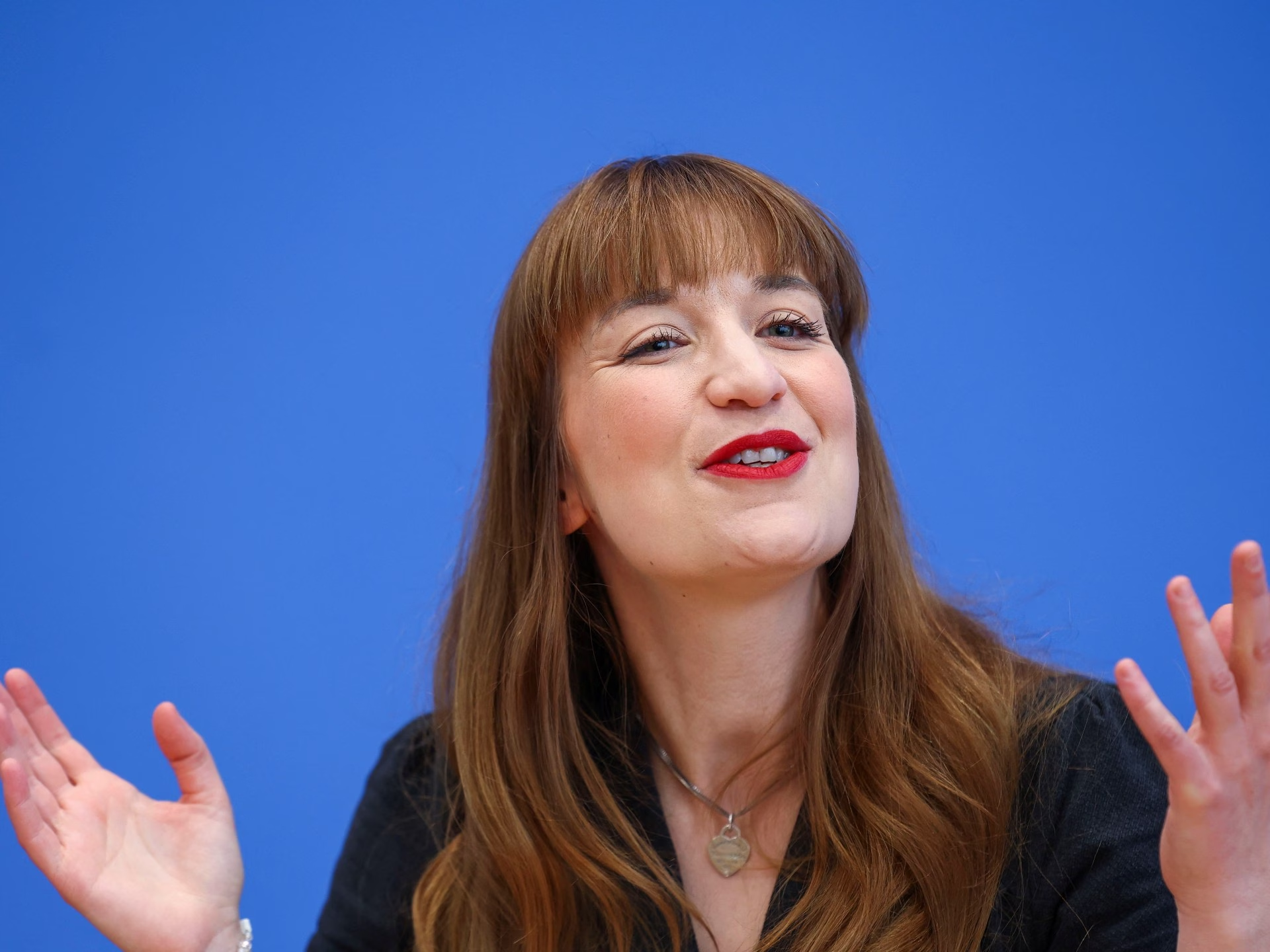Berlin, Germany – Ahead of the German election, Friedrich Merz, the frontrunner to become chancellor, breached a longstanding, cross-party agreement not to collaborate with the far-right, anti-immigrant Alternative For Deutschland (AfD) party, in order to push tougher migration laws through the legislature.
Pressure had mounted after two fatal attacks within a short period, carried out by individuals who had claimed asylum in the country.
Although the legislation was ultimately blocked, the move drew criticism from across the political spectrum, including former Chancellor Angela Merkel, Merz’s fellow member of the Christian Democratic Union (CDU).
In a heated speech to the Bundestag, the German Parliament, Heidi Reichinnek, a co-leader of the Left party known as Die Linke, expressed her disgust at Merz’s “deliberate” collaboration with “right-wing extremists”.
“Just two days after commemorating the liberation of Auschwitz and the murdered, you are now cooperating with those who continue this same ideology,” she declared.
Her speech garnered significant online attention, with over seven million views on TikTok, propelling Reichinnek to national prominence. Media coverage focused on the fallout and her social media presence, which showcased her identity as a socialist, feminist, and anti-fascist, adorned with tattoos.
As the election neared, Reichinnek intensified her progressive campaigning, engaging with influential figures and actively critiquing Merz and the AfD, while advocating for issues like housing and human rights.
Such efforts were successful.
In the February 23 election, Die Linke secured 9 percent of the vote, more than doubling its share from the 2021 election, attracting a quarter of young voters—more than any other party in this demographic.
Post-election, Reichinnek emphasized the significance of the victory not only for Die Linke but for the broader movement for “social justice, solidarity, and democracy”.
While recognizing the achievement, she stressed that the fight was far from over, with ongoing challenges like economic crises, social inequality, and the threat from the far-right, arguing that Die Linke would remain active and outspoken.
Reichinnek’s role in the party’s resurgence is credited to her effective mobilization of young voters and her clear, issue-focused communication strategy.
“Reichinnek’s communication strategy was very clear and addressed certain issues, such as high housing costs and the resurgence of the far-right, which many young people are concerned about,” noted political scientist Stefan Marschall.
Born in the eastern state of Saxony-Anhalt in 1988, Reichinnek has been politically engaged since her teenage years, advocating for issues such as social equality and unemployment reforms. She continued her political education with studies in Middle East Studies and Political Science and time in Cairo during the Arab Spring, which inspired her.
Reichinnek’s authentic background and commitment to social policy issues arising from her East Germany roots have helped to make her stand out in a political landscape where East German backgrounds are rare. Her rise within Die Linke coincided with internal strife, creating an avenue for progressive voices to grow and steering the party towards more liberal positions on immigration and a pro-human rights stance.
Her ability to connect with people and speak honestly has endeared her to a younger audience and distinguished her from older, more traditional political figures. Die Linke now faces a rejuvenated, albeit challenging political climate in Germany, with Reichinnek playing a crucial role in bringing energy to the party’s progressive agenda.
Pressure had mounted after two fatal attacks within a short period, carried out by individuals who had claimed asylum in the country.
Although the legislation was ultimately blocked, the move drew criticism from across the political spectrum, including former Chancellor Angela Merkel, Merz’s fellow member of the Christian Democratic Union (CDU).
In a heated speech to the Bundestag, the German Parliament, Heidi Reichinnek, a co-leader of the Left party known as Die Linke, expressed her disgust at Merz’s “deliberate” collaboration with “right-wing extremists”.
“Just two days after commemorating the liberation of Auschwitz and the murdered, you are now cooperating with those who continue this same ideology,” she declared.
Her speech garnered significant online attention, with over seven million views on TikTok, propelling Reichinnek to national prominence. Media coverage focused on the fallout and her social media presence, which showcased her identity as a socialist, feminist, and anti-fascist, adorned with tattoos.
As the election neared, Reichinnek intensified her progressive campaigning, engaging with influential figures and actively critiquing Merz and the AfD, while advocating for issues like housing and human rights.
Such efforts were successful.
In the February 23 election, Die Linke secured 9 percent of the vote, more than doubling its share from the 2021 election, attracting a quarter of young voters—more than any other party in this demographic.
Post-election, Reichinnek emphasized the significance of the victory not only for Die Linke but for the broader movement for “social justice, solidarity, and democracy”.
While recognizing the achievement, she stressed that the fight was far from over, with ongoing challenges like economic crises, social inequality, and the threat from the far-right, arguing that Die Linke would remain active and outspoken.
Reichinnek’s role in the party’s resurgence is credited to her effective mobilization of young voters and her clear, issue-focused communication strategy.
“Reichinnek’s communication strategy was very clear and addressed certain issues, such as high housing costs and the resurgence of the far-right, which many young people are concerned about,” noted political scientist Stefan Marschall.
Born in the eastern state of Saxony-Anhalt in 1988, Reichinnek has been politically engaged since her teenage years, advocating for issues such as social equality and unemployment reforms. She continued her political education with studies in Middle East Studies and Political Science and time in Cairo during the Arab Spring, which inspired her.
Reichinnek’s authentic background and commitment to social policy issues arising from her East Germany roots have helped to make her stand out in a political landscape where East German backgrounds are rare. Her rise within Die Linke coincided with internal strife, creating an avenue for progressive voices to grow and steering the party towards more liberal positions on immigration and a pro-human rights stance.
Her ability to connect with people and speak honestly has endeared her to a younger audience and distinguished her from older, more traditional political figures. Die Linke now faces a rejuvenated, albeit challenging political climate in Germany, with Reichinnek playing a crucial role in bringing energy to the party’s progressive agenda.







